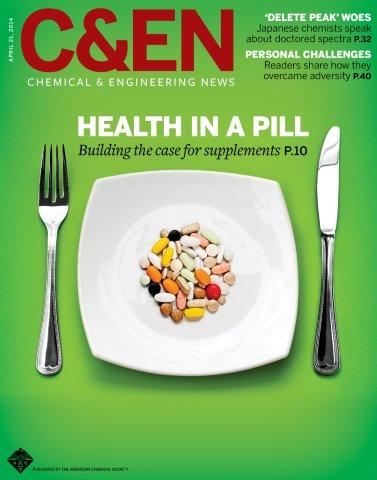FOR IMMEDIATE RELEASE
ACS News Service Weekly PressPac: April 23, 2014
Chemical companies shore up supplement science
"Supplemental Science"
Chemical & Engineering News
As evidence mounts showing the potential health benefits of probiotics, antioxidants and other nutritional compounds, more and more people are taking supplements. And the chemical industry is getting in on the action. But legitimate skepticism about supplements’ health effects could deter growth, so the industry is responding with clinical research to shore up health claims, according to the cover story in Chemical & Engineering News (C&EN), the weekly news magazine of the American Chemical Society.
Melody M. Bomgardner, a senior editor at C&EN, writes that about half of U.S. adults regularly take dietary supplements even though less than one-quarter take them on doctors’ orders. Multivitamins rank as the most common supplement by a large margin, followed by calcium and omega-3 fatty acids. A variety of compounds are touted for a wide range of effects, from preventing heart disease, cancer and stroke to delaying Alzheimer’s progression. Interestingly, although research has linked certain compounds to health-promoting activity in human cells, there is a lack of clinical evidence to prove that taking supplements has long-term benefits. Thus, some public health experts advise against widespread use. That hasn’t hurt the $67 billion global supplement business, but the chemical industry isn’t taking that scientific gap for granted.
To win over critics, chemical companies are investing in studies to demonstrate their products’ health benefits. A few small studies have already appeared in scientific journals, but it will take a while before a large body of evidence amasses. Big, trusted names like DuPont and BASF help lend credibility to the quality and consistency of products among consumers, but it remains to be seen whether skeptical clinicians will become convinced.


